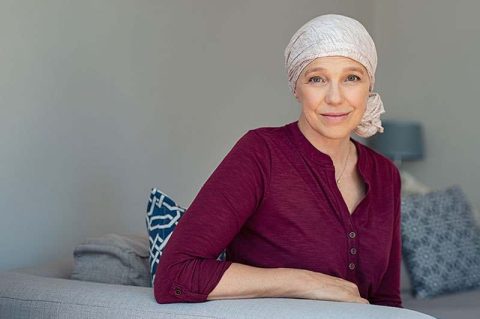March 22, 2023 by

The benefits of chemotherapy are without question and can save someone’s life. Yet, during the process of destroying harmful cancer cells, noncancerous cells can also be in the crossfire, creating challenging side effects. The physician will provide recommendations on what cancer patients should do to reduce these effects, and an empowered patient can help support the goal by knowing what to avoid during chemo treatment.
What Should You Avoid During Chemotherapy?
- Smoking: Smoking can lead to hypoxia (a lack of oxygen) in cancer tumors and other areas of the body that could impact the efficacy of chemo and worsen side effects.
- Vitamins: A 2019 study pointed to evidence of a reduction in chemo’s effectiveness and a significant reduction in the desired outcome by people who were taking certain vitamins (including B12, A, and C).
- Alcohol: Alcohol can worsen the negative side effects of chemo, even in very small amounts.
- Probiotics: Probiotics contain beneficial yeast and bacteria, but skip them during chemo due to the body’s compromised immune system.
- UV light: Limit exposure to sunlight and stay away from tanning beds, which can have a more severe effect on the skin in someone receiving chemotherapy.
- Strenuous exercise: This includes both physically and mentally taxing tasks, which could exacerbate stress, fatigue, nausea, and mood swings.
- Infections: Because the immune system is compromised during chemotherapy, it’s a good idea to stay away from those who are sick.
There are also a number of types of foods to avoid during chemo treatment, such as:
- Seville oranges, a cross between the pomelo and mandarin orange, and their juice
- Raw nuts
- Grapefruits and grapefruit juice
- Raw fish and shellfish
- Spicy and acidic foods and condiments
- Raw honey
- Fresh salsa and salad dressing
- Foods from bulk bins
- Hard, sharp foods such as potato chips, crackers, cookies, and granola
- Blue as well as other moldy cheeses
- Raw or soft-cooked eggs
Chemo To-Dos
While avoiding the items above, the following action items can be helpful during chemotherapy:
- Protect the skin from sensitivity and dryness by using gentle soap and moisturizing the skin often, wearing sunscreen, and selecting loose-fitting clothes and a hat when outdoors
- Mitigate appetite problems by eating smaller, more frequent meals (including plenty of protein), drinking at least 8 – 12 cups of water each day, and staying as physically active as possible to help increase appetite
- Lessen fatigue by arranging for transportation to and from chemo appointments and designating both the day of and the day after chemo as days of rest
- Decrease the risk of infection by washing hands frequently, avoiding large crowds, and staying up-to-date on vaccinations recommended by your doctor
Keep in mind that support is an extremely important component of cancer care. Build a strong network of friends and family and include a professional caregiver to ensure all needs – physical, emotional, and socially – will be met during this difficult time.
Cancer care can be complicated. Let At Home Independent Living’s highly trained and award-winning care professionals help. To learn more about options for independent living, contact us at (315) 579-HOME (4663) to schedule a complimentary in-home consultation today. Please see our full service area.
